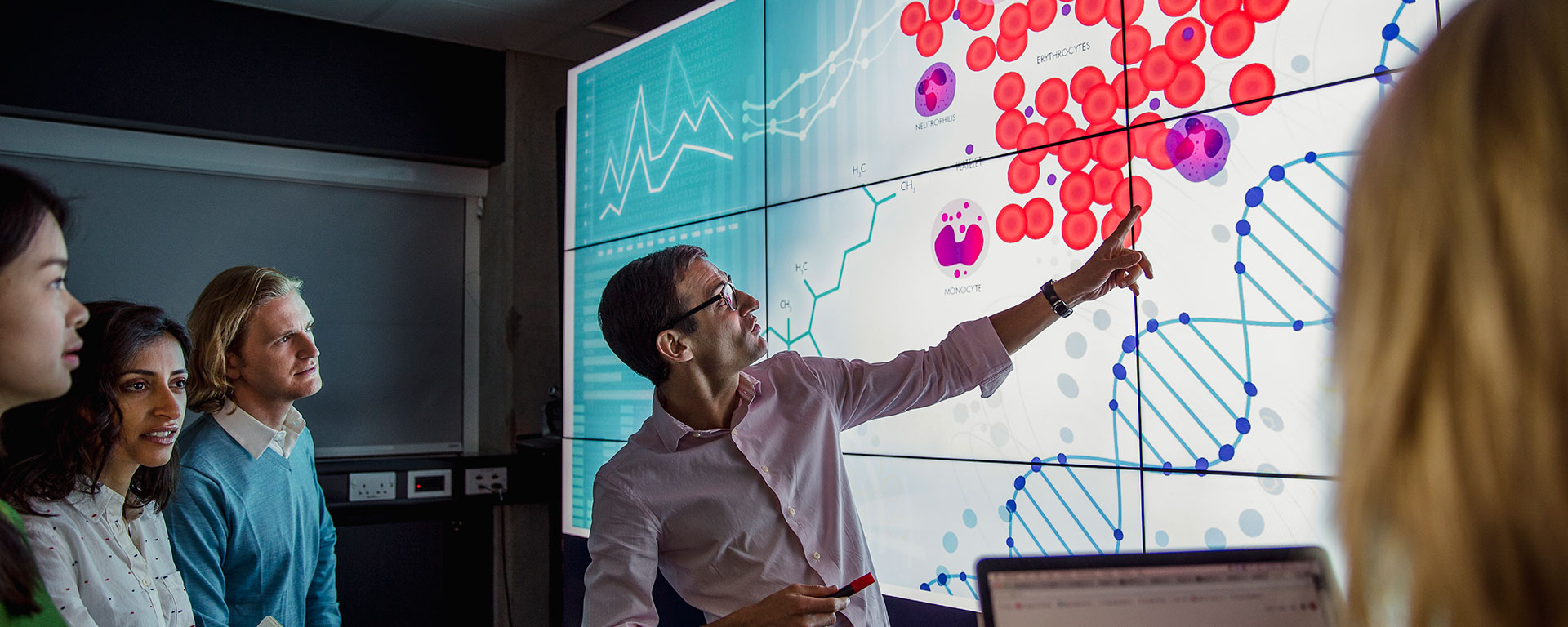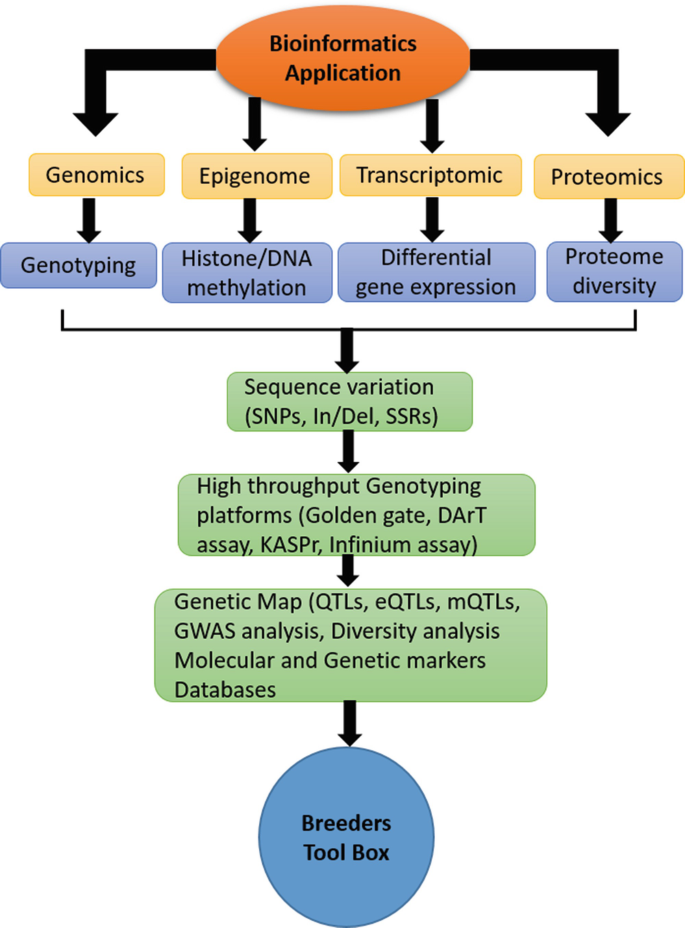The Basic Principles Of Bioinformatics Tutor
The Basic Principles Of Bioinformatics Tutor
Blog Article
Bioinformatics Tutor Fundamentals Explained
Table of ContentsNot known Details About Bioinformatics Tutor The 7-Second Trick For Bioinformatics TutorNot known Facts About Bioinformatics TutorAbout Bioinformatics TutorSome Known Factual Statements About Bioinformatics Tutor
Of the overall individuals associated with the training, 80% were students from public greater education and learning organizations, while the remaining 20% originated from exclusive institutions. To qualify for a certification of participation, students were required to attend at the very least 90% of the complete training hours. As a result of this requirement, an excellent 95% of the individuals efficiently gotten their certifications, having not only satisfied the minimum presence requirements however likewise completed all appointed tasks throughout the training.
Throughout the elevation of the COVID-19 pandemic, particularly between June and August 2020, the task group was entrusted with organizing specialized training in bioinformatics. This training was especially intended at trainees from the research team Nucleus for Research in Applied Computer at the Federal College of Pará (UFRA) The adjustment to remote discovering platforms because of the pandemic developed a possibility to discover brand-new mentor approaches and digital tools that improved both reach and efficiency.
This course was designed to supply an accessible yet extensive overview of Artificial Knowledge methods, especially as used in bioinformatics (Bioinformatics Tutor). This online style allowed participation from trainees across Brazil, many of whom may not have had the possibility to go to in-person sessions.
How Bioinformatics Tutor can Save You Time, Stress, and Money.
Around 50% of the overall training hours were devoted to useful tasks where students built intelligent versions and applications in a variety of scientific domains, including genetics, molecular biology, and ecological information evaluation. These systems allowed pupils to engage in real-time information control, version training, and algorithm testing.
Sixty of them were connected with numerous higher education and learning establishments in the state of Pará, while the staying twenty came from institutions found in five various other Brazilian states. By introducing Artificial Knowledge in a pertinent and functional context, the initiative served to bridge the void in between concept and real-world application, providing trainees with a solid foundation for future study or work in the area.
The training effort formed component of a more comprehensive academic outreach initiative called the Bioinformatics when traveling task. This job has, throughout the years, presented lots of pupils to the globe of bioinformatics and computational biology. The events held under this umbrella initiative have occurred throughout multiple regions and years, as summarized in Table 1 (List of occasions, areas, years, and complete numbers of trainees and trainers)
Among one of the most remarkable results of the Bioinformatics when driving effort has actually been its contribution to the growth of decentralized research study teams. Several of these teams, initially combined by their involvement in training occasions, have considering that gone on to produce independent clinical study in partnership with neighborhood academic establishments. The training not just promoted scientific thinking within the context of bioinformatics yet additionally sparked joint relationships that expanded past the training setting. These partnerships have you can try these out led to raised regional scientific productivity and contributed meaningfully to the development of the wider bioinformatics neighborhood in Brazil.
Bioinformatics Tutor Things To Know Before You Buy
The task itself was conceptualized and organized by MB and RR, who oversaw the preparation and implementation of each action. Lectures were supplied by a multidisciplinary group being composed of MB, FA, EF, KP, JS, DM, SN, LP, LG, AIR CONDITIONER, IH, and RR. The exact same group, excluding IH and RR, also acted as tutors for the practical training modules. Funding for the task was provided with the give 88887.200562/ 2018-00 from CAPES. The writers expand their appreciation to every person who contributed to the awareness of this job, whether directly or indirectly, since its beginning.
The Federal University of Pará's Office of Research (PROPESP/UFPA) additionally supplied financial backing, especially for the production of the last manuscript. The writers state no monetary or industrial problems of passion that might have influenced the research. Additionally, all opinions and interpretations expressed in this write-up are exclusively those of the writers and do not necessarily weblink reflect those of see this their corresponding organizations, the publisher, editors, or customers entailed in the publication process.

The smart Trick of Bioinformatics Tutor That Nobody is Talking About
From a pedagogical point of view, the teaching technique utilized in the training was purposefully interactive. Courses were carried out in a manner that encouraged trainee participation and discussion, exceeding rote memorization to explore exactly how ideas are created, applied in day-to-day live, and examined in scholastic settings. The training approach concentrated on supporting both solid and battling pupils, giving individualized assistance, and structure confidence via sustained mentorship and perseverance.

Each team, consisting of roughly 36 individuals, was supported by 3 mentors-- the majority of whom were postdoctoral researchers with specialized expertise. These advisors not just aided make the group jobs but additionally promoted their implementation, ensuring that each study inquiry was both properly tough and appropriate. The goal was to give a biologically practical context that individuals could explore through flexible purposes and access to curated datasets.
For added understandings into the methodology and results of this project-based discovering strategy, viewers are directed to S1 Text, that includes detailed descriptions of the instructional framework, analysis methods, and project motifs utilized in the training sessions.
Our Bioinformatics Tutor Ideas
Of the total participants included in the training, 80% were pupils from public higher education and learning organizations, while the continuing to be 20% came from private organizations. To certify for a certification of participation, trainees were called for to participate in at least 90% of the total training hours. Significantly, past the pupils that registered in the training sessions, seven knowledgeable teachers participated in delivering the programs, while 3 specialized study teachers coordinated the overall training process. Around 50% of the overall training hours were committed to sensible tasks where students developed smart versions and applications in an array of clinical domains, including genetics, molecular biology, and ecological information evaluation. The training not just cultivated clinical reasoning within the context of bioinformatics yet additionally triggered joint partnerships that prolonged past the training setting.
Report this page